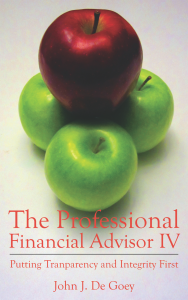Remember when fund managers were rock stars?
Why you don't see a lot of books on top mutual funds anymore
Advertisement
Why you don't see a lot of books on top mutual funds anymore

 In short, the books lent credence to the notion of security selection as an activity that can be reliably used to outperform the markets with no evidence to support it. This lack of reliability is disclosed in prospectuses and advertising campaigns around the world. The books implied that the prospectus disclaimers were worthless when, in fact, it was the other way around.
I took on the challenge of sifting through the most prominent fund-picking books from 1996 (with rankings based on results from June 30, 1995) to see how the ten-year numbers stacked up as of June 30, 2005, and published my findings in The Globe and Mail.
The results were stunning. In all four books, the majority of recommended funds lagged their benchmarks over the ten-year period. In fact, a large proportion of the funds weren’t even good enough to survive the entire ten-year period. Many studies have shown that survivorship bias causes current performance numbers to look considerably better than they really are.
These days, most observers agree that only about 60% of all mutual funds that are launched are around to celebrate their tenth anniversary. Given this attrition rate, it should be obvious that it’s much easier to have a respectable class average if you don’t have to take a massive dropout rate into account. Regardless, the recommended funds had a collective performance record that could only be described as awful. Perhaps even more disconcerting was that the authors generally used only three years’ worth of data to make a pronouncement on a fund’s relative merit. In their minds, thirty-six monthly data points were all that was required to make an informed decision regarding performance.
Of course, having most funds lag their benchmarks after accounting for expenses would make little difference if people could reliably identify the handful that would ultimately outperform. Alas, this can’t be done. In fact, by 1998, a ground-breaking research study led by Mark Carhart showed that superior funds could not be reliably identified in advance and do not persist at any rate. I should also add that near the beginning of some of these books, some authors even included passages saying that they believed good managers could be reliably identified.
However, no rationale was ever given as to why the authors held this opinion. Then, near the end of these books, they sometimes added astonishing admissions such as “research puts the contribution of security selection—that is, choice of specific investments—at only 2% when discussing performance.” In other words, when combining these comments, the translation comes out as something like “we think superior managers can be reliably identified in advance, but we can’t prove it, and it is of almost no consequence anyway.”
In short, the books lent credence to the notion of security selection as an activity that can be reliably used to outperform the markets with no evidence to support it. This lack of reliability is disclosed in prospectuses and advertising campaigns around the world. The books implied that the prospectus disclaimers were worthless when, in fact, it was the other way around.
I took on the challenge of sifting through the most prominent fund-picking books from 1996 (with rankings based on results from June 30, 1995) to see how the ten-year numbers stacked up as of June 30, 2005, and published my findings in The Globe and Mail.
The results were stunning. In all four books, the majority of recommended funds lagged their benchmarks over the ten-year period. In fact, a large proportion of the funds weren’t even good enough to survive the entire ten-year period. Many studies have shown that survivorship bias causes current performance numbers to look considerably better than they really are.
These days, most observers agree that only about 60% of all mutual funds that are launched are around to celebrate their tenth anniversary. Given this attrition rate, it should be obvious that it’s much easier to have a respectable class average if you don’t have to take a massive dropout rate into account. Regardless, the recommended funds had a collective performance record that could only be described as awful. Perhaps even more disconcerting was that the authors generally used only three years’ worth of data to make a pronouncement on a fund’s relative merit. In their minds, thirty-six monthly data points were all that was required to make an informed decision regarding performance.
Of course, having most funds lag their benchmarks after accounting for expenses would make little difference if people could reliably identify the handful that would ultimately outperform. Alas, this can’t be done. In fact, by 1998, a ground-breaking research study led by Mark Carhart showed that superior funds could not be reliably identified in advance and do not persist at any rate. I should also add that near the beginning of some of these books, some authors even included passages saying that they believed good managers could be reliably identified.
However, no rationale was ever given as to why the authors held this opinion. Then, near the end of these books, they sometimes added astonishing admissions such as “research puts the contribution of security selection—that is, choice of specific investments—at only 2% when discussing performance.” In other words, when combining these comments, the translation comes out as something like “we think superior managers can be reliably identified in advance, but we can’t prove it, and it is of almost no consequence anyway.”
Share this article Share on Facebook Share on Twitter Share on Linkedin Share on Reddit Share on Email